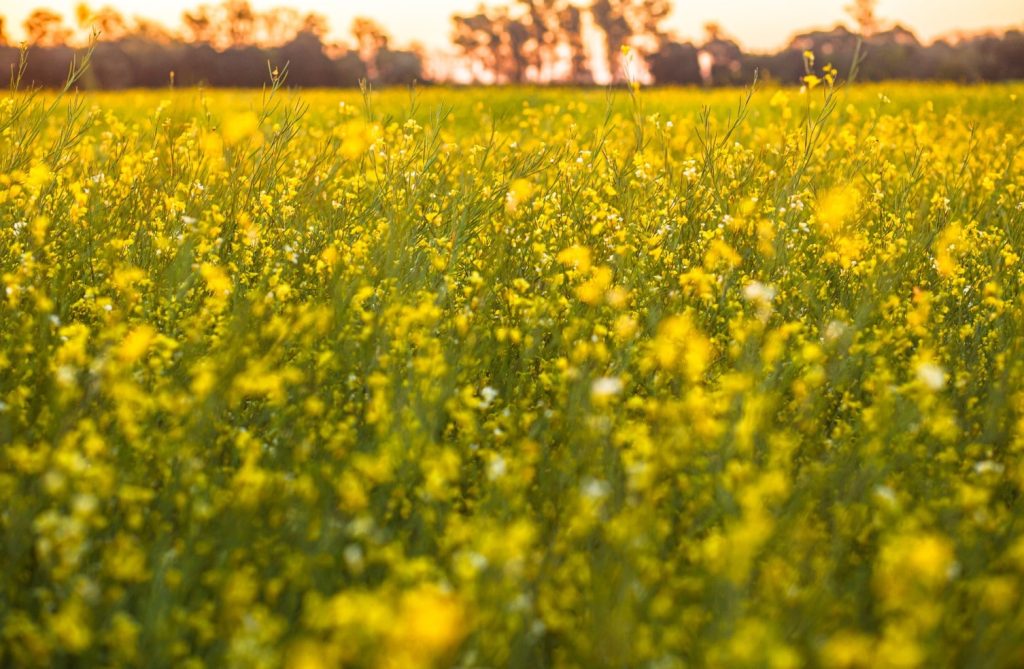Nuseed Carinata is a non-food cover crop source for sustainable low carbon fuel that effectively sequesters carbon from the air to improve soil health, just as nature intended. A solution over a decade in the making, Nuseed is unlocking the full potential of this powerful plant to increase its use globally to help reduce greenhouse gases (GHGs) while providing a certified sustainable energy source grown between food crops on existing farmland.
Key milestones enable certified scalable sustainable global production
Since 2010, the work on carinata focused on strengthening and expanding the research and development (R&D) scope in different global regions grown between the fall harvest and spring planting, under sustainable production practices.
Nuseed has worked to develop Nuseed Carinata as a new sustainable, globally scalable biofuel feedstock for end-use markets, made regulatory advancements and continued to implement rigorous sustainability protocols earning Roundtable on Sustainable Biomaterials (RSB) certification. Nuseed Carinata is now well positioned for global expansion with Nuseed’s regional business infrastructure and agronomic expertise.
The initial production focus is maximizing the potential of this non-food cover crop in South America. Commercial programs are already operational in Argentina and Uruguay with Nuseed Carinata exports to the EU’s biofuel market and its non-GMO high protein meal used for feed.
Global demand for low carbon fuel feedstock
Nuseed’s goal is to support the anticipated growth in demand for scalable sustainable feedstock for Renewable Diesel (RD) and Sustainable Aviation Fuel (SAF), while retaining the low carbon intensity of a cover crop.
The recent International Air Transport Association (IATA) Net Zero Carbon by 2050 resolution to increase use of Sustainable Aviation Fuel (SAF) from 2% in 2025 to 65% in 2050, demonstrates the growing demand for sustainably scalable solutions that do not compete with food, like Nuseed Carinata. The Biden administration’s Grand Challenge targeting 35 billion gallons of SAF in use by 2050 reinforces the importance of decarbonizing aviation. Listed by the International Civil Aviation Organization (ICAO) as having similar greenhouse gas (GHG) savings as top performing feedstocks, primarily waste and used cooking oil, Nuseed Carinata is already recognized as a comparable carbon reduction SAF feedstock, with the added benefit of scalable production.
To meet worldwide demand Nuseed sees huge potential in several locations around the globe where the crop can be grown between main crops, protecting and improving soil health by sequestering carbon from the air. The regulatory and supply chain developments needed within those locations are already well underway. Regulatory clearance for seed genetics has recently been achieved in Paraguay and is progressing in Brazil, for example.
“Biofuel demand is outpacing developments in sustainable feedstock at a rapid pace. There’s a tremendous opportunity now to increase supply by growing Nuseed Carinata as a cover crop between existing main crop rotations,” explains Alex Clayton, Global Business Development Leader for Nuseed Carinata. “Between nearly every main crop hectare Nuseed Carinata can be grown to improve the soil and provide best in class feedstock for sustainable low-carbon fuel, with high protein meal for livestock feed as a byproduct. All between food crops on existing farmland – an enormous benefit to our environment, growers, industry and communities.”
Following years of R&D, commercial production planning is underway for introduction of the Nuseed Carinata program in the U.S. in the near future, in addition to current R&D programs in Europe and Australia. The team is focused on breeding high yielding hybrid seed, expanding herbicide tolerance options and early maturity, while at the same time maintaining non-GMO status.

